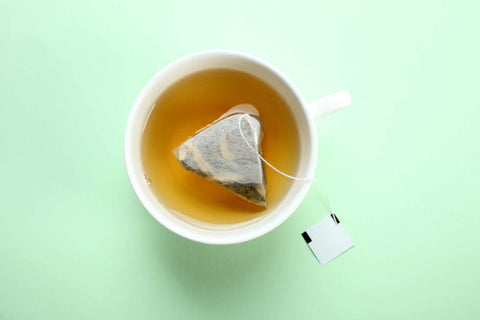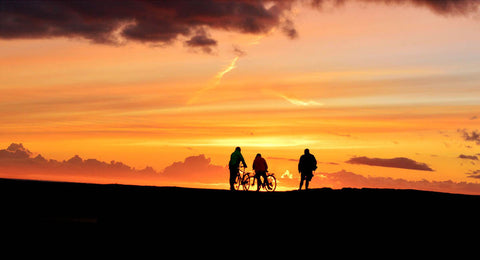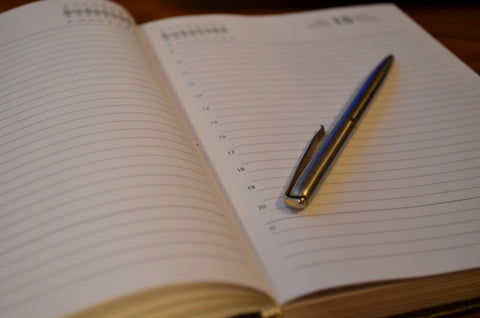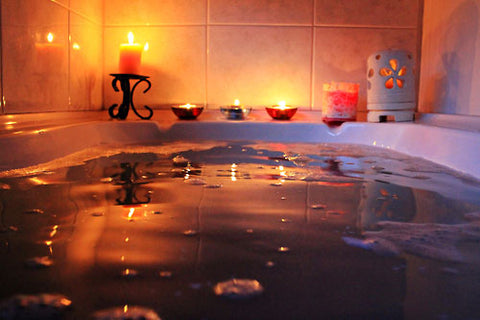Sleep - the thing we love but can’t always do! What's worse is the more we think about it and pressure ourselves to fall asleep before a certain time, the harder it becomes, the later it gets and we just wake up angry and frustrated. So, what can we do to prepare ourselves for a good night's sleep?
Firstly, it is important to recognise why sleep is so important. Not only does it have physical benefits by allowing our bodies to recharge but regular poor sleep increases the risk of serious medical conditions such as heart disease and diabetes. Recent studies have also found that regular good night’s sleep is essential for long and healthy life. Sleep also has a major impact on our mental health whereby a lack of sleep can make it difficult to concentrate and make decisions and in the long term this can lead to depression and an increased risk of accidents at home, work and whilst driving.
But let's focus on the positive! Consistently having a good night's sleep can: increase your mental wellbeing, boost your immune system, aid weight loss and increase libido and fertility levels. With this in mind, we feel it is now more important than ever to reach out and provide some aftercare support.
There are plenty of articles and blogs out there that explain several ways to get a better night's sleep. Many of these recommendations: not consuming any caffeine-based products at least 4 hours before bed with some suggesting that caffeine should not be consumed after midday, not using any electronic devices that emit ‘blue light’ such as TVs and mobile phones 2 hours before bedtime and purchasing a new bed and mattress. Well, let’s say we’ve got you covered with the new furniture and whilst these are great suggestions based on scientific research, they are just not always practical or easy to follow. So, we have devised our 5 top tips for a better night's sleep with a more realistic approach...
Tip 1: Drinks
We all love a drink in the evening whilst binge-watching our favourite show, but some can hinder our sleeping patterns significantly. Unfortunately, this does also include alcohol and although a cheeky nightcap may help you ‘fall asleep faster’, research has shown that the consumption of alcohol disrupts our quality of sleep. We recommend trying these alternatives more frequently to get you ready for bed:
- Tea: Most teas do actually contain caffeine so it is best to avoid these in the hours leading up to bedtime. However, Chamomile tea contains an antioxidant called apigenin, which can help promote sleepiness. You could also try herbal teas or decaffeinated green tea.
- Coffee: If you are a coffee lover you may want to try more decaffeinated coffees in the late afternoon and evening, this way you can still enjoy that great coffee taste without the regret in bed!
- Hot lemon water: refreshing and aids digestion
- Cherry juice: this contains melatonin (the hormone that triggers sleep), but be aware of the high amount of sugar that is added to most supermarket brands
- Warm milk: you can also use almond milk or add some cocoa powder for more flavour

Tip 2: Exercise
Exercise is important for both our physical and mental health, but it also impacts our quality of sleep. Physical activity increases the time spent in deep sleep, which is the most physically restorative sleep phase. Whilst exercising any time of the day is still beneficial for your body if you are having trouble sleeping you could try exercising in the morning or afternoon. This may sound like even more effort is required, but this recommendation is based on the fact that when you exercise you release myriad neurotransmitters that stimulate the body and brain and consequently trigger sleep hormones throughout the day. If you were to work out in the evening, this may not produce enough hormones that will help you feel tired.
With gyms closed you may find it harder to get into a workout routine, however, there are many alternatives that you can try:
- Walking, running or cycling
- Home fitness apps: Whilst these usually incur monthly subscriptions, these are often cheaper than the equivalent of gym memberships and can be done with minimal equipment. This could be a good alternative for those who are more vulnerable at the moment or perhaps miss a structured routine from a personal trainer. Some good apps to try are Kayla Itsines ‘Sweat’ app or Krissy Cela’s ‘Tone & Sculpt’ app.
- Youtube: There are so many different types of free workout videos available, one day you can choose to do a Zumba class and an ab class the next. Joe Wicks has captured the heart of the nation by providing online PE lessons for families across the country since lockdown started in March and is a great way to get the whole family involved!

Tip 3: Scents
Might seem simple, but this can be a great way to relax and calm your body to enhance sleepiness. These scents can be released through candles or diffusers, body lotion, massage oils or by mixing essential oils with a bit of water and spraying this onto your pillow.
Here are a few to try:
- Lavender: decreases heart rate and blood pressure (calming) and can reduce feelings of stress and anxiety
- Vanilla: promotes relaxation and its luxurious sweet smell possesses antidepressant qualities
- Jasmine: can improve sleep quality through its sedative effects on mood, nerve activity and by reducing feelings of anxiety

Tip 4: Putting your thoughts to bed
It is so easy when you are lying in bed trying to fall asleep to let your mind wonder. This can also be subconscious and any stress that you may be experiencing can impact your ability to ‘shut down’ for a few hours. If this is something you commonly experience, you might want to try writing your thoughts down on paper before bed. This may be in the form of writing down the positive and negative aspects of your day, a plan of what you want to achieve the following day or writing a letter/diary about your concerns. This therapeutic practise can help clear your mind temporarily, allowing you to fall asleep quicker, and these ideas or concerns can be revisited the next day if necessary. It is an approach that can be recommended by counsellors as a way to manage or control stress and anxiety levels. Don’t worry about making it sound professional or looking pretty, this is something personal, giving yourself some ‘me time’ and practising the art of self-reflection.

Tip 5: Create a ‘sleep ritual’
Sounds funny and overcomplicated, but to put it simply this is the idea of performing certain tasks or actions at a set time each day in order to prepare your body and mind for sleep. This will take time and resilience to get used to, but if you stick with it, it will become a habit and your body should soon start to subconsciously relax and associate these actions with sleep. Start by setting yourself with an ideal bedtime, and work backwards on how you wish to spend those hours leading up to bed. Part of your sleep ritual can consist of some of the tips mentioned above, for example, having that warm drink before bed and writing your thoughts down on paper, but can also include the following:
- Having a warm relaxing bubble bath
- Meditation or yoga
- Designating time to speak with members of your household
- Read a book
- Listening to relaxing or calm music (this is not the time to listen to that new party anthem)
- Not using electronic devices after a set time (it is recommended not to use devices that emit blue light a few hours before bed, but if this is not possible even 30 minutes will still be beneficial).

Whether you decide to try a couple of these tips or just one, make sure it's something you enjoy so it can become an effortless part of your everyday life!

































Leave a comment